I have a list of products which contains many objects having properties like id,image_url. As you can see below:
total_products
[{u'image_url': u'https://external.xx.fbcdn.net/safe_image.php?d=AQCG1ObwtCgqxZIk&url=http%3A%2F%2Fgigya.jp%2Fdpa%2F1000000.png&cfs=1&_nc_hash=AQAPdo31zo9WJk8j', u'id': u'1539966686030963', u'retailer_id': u'product-1000000'}, {u'image_url': u'https://external.xx.fbcdn.net/safe_image.php?d=AQDyc-Yyic5QLOqH&url=http%3A%2F%2Fgigya.jp%2Fdpa%2F0.png&cfs=1&_nc_hash=AQDhmhPJxFZEpMFX', u'id': u'993388404100117', u'retailer_id': u'product-0'}, {u'image_url': u'https://external.xx.fbcdn.net/safe_image.php?d=AQAwTzrzAjdKFjmB&url=http%3A%2F%2Fgigya.jp%2Fdpa%2F1000.png&cfs=1&_nc_hash=AQCMMJRJ_r7QB06I', u'id': u'642820939176165', u'retailer_id': u'product-1000'}, {u'image_url': u'https://external.xx.fbcdn.net/safe_image.php?d=AQBHdbRqB7F6aMKM&url=http%3A%2F%2Fgigya.jp%2Fdpa%2F1.png&cfs=1&_nc_hash=AQDx7P52g0NYBB-3', u'id': u'1411912028843607', u'retailer_id': u'product-1'}, {u'image_url': u'https://external.xx.fbcdn.net/safe_image.php?d=AQB7aSPmk_j21umz&url=http%3A%2F%2Fgigya.jp%2Fdpa%2F100000.png&cfs=1&_nc_hash=AQAPV5oe_ymaAcXr', u'id': u'942522339181104', u'retailer_id': u'product-100000'}, {u'image_url': u'https://external.xx.fbcdn.net/safe_image.php?d=AQB69V2cgASUIci1&url=http%3A%2F%2Fgigya.jp%2Fdpa%2F100.png&cfs=1&_nc_hash=AQAk3eZ4vqWYbOW4', u'id': u'1347112758661660', u'retailer_id': u'product-100'}, {u'image_url': u'https://external.xx.fbcdn.net/safe_image.php?d=AQD44rjEUMk6Yp2H&url=http%3A%2F%2Fgigya.jp%2Fdpa%2F1000001.png&cfs=1&_nc_hash=AQBT_0iB417B08ux', u'id': u'1354204821311003', u'retailer_id': u'product-1000001'}, {u'image_url': u'https://external.xx.fbcdn.net/safe_image.php?d=AQB4ucqXEbo2DyC7&url=http%3A%2F%2Fgigya.jp%2Fdpa%2F1000002.png&cfs=1&_nc_hash=AQAQ2vuj0WmuXSqw', u'id': u'1776841739008769', u'retailer_id': u'product-1000002'}, {u'image_url': u'https://external.xx.fbcdn.net/safe_image.php?d=AQBM75VZTNuxqaoq&url=http%3A%2F%2Fgigya.jp%2Fdpa%2F10.png&cfs=1&_nc_hash=AQAUdkc6II5eu47D', u'id': u'1358784964179738', u'retailer_id': u'product-10'}, {u'image_url': u'https://external.xx.fbcdn.net/safe_image.php?d=AQAY0kmVnHXBbhHe&url=http%3A%2F%2Fgigya.jp%2Fdpa%2F10000.png&cfs=1&l&_nc_hash=AQCT1PHl5h1Rhc5r', u'id': u'1337513966312571', u'retailer_id': u'product-10000'}]
I am reading a csv file which contains data like below;-
As you can see id the in the csv_file id and retailer_id are same for some products-
so I want to change the image_link in csv file if retailer_id and id matches.
In doing so I am reading csv file row by row and looping through all the products in total_products and if any match is found change image_link
Code:
def update_csv(file):
print file
reader = csv.DictReader(open(file))
out_file_name = str(file).replace(".csv", "")
writer = csv.DictWriter(open(out_file_name+"_updated.csv","wb"),fieldnames=reader.fieldnames)
writer.writeheader()
for current_row in reader:
for product in total_products:
retailer_id = product['retailer_id']
if(current_row['id']==retailer_id):
current_row['image_link']= "RajSharma"
print "Match = "+str(retailer_id)+" in "+file
break
writer.writerow(current_row)
The problem with this approach is if total_products contains more than 1000-10,000 it's taking too long to run.
Is there way to find retailer_id in total_products and if so change image_link?
